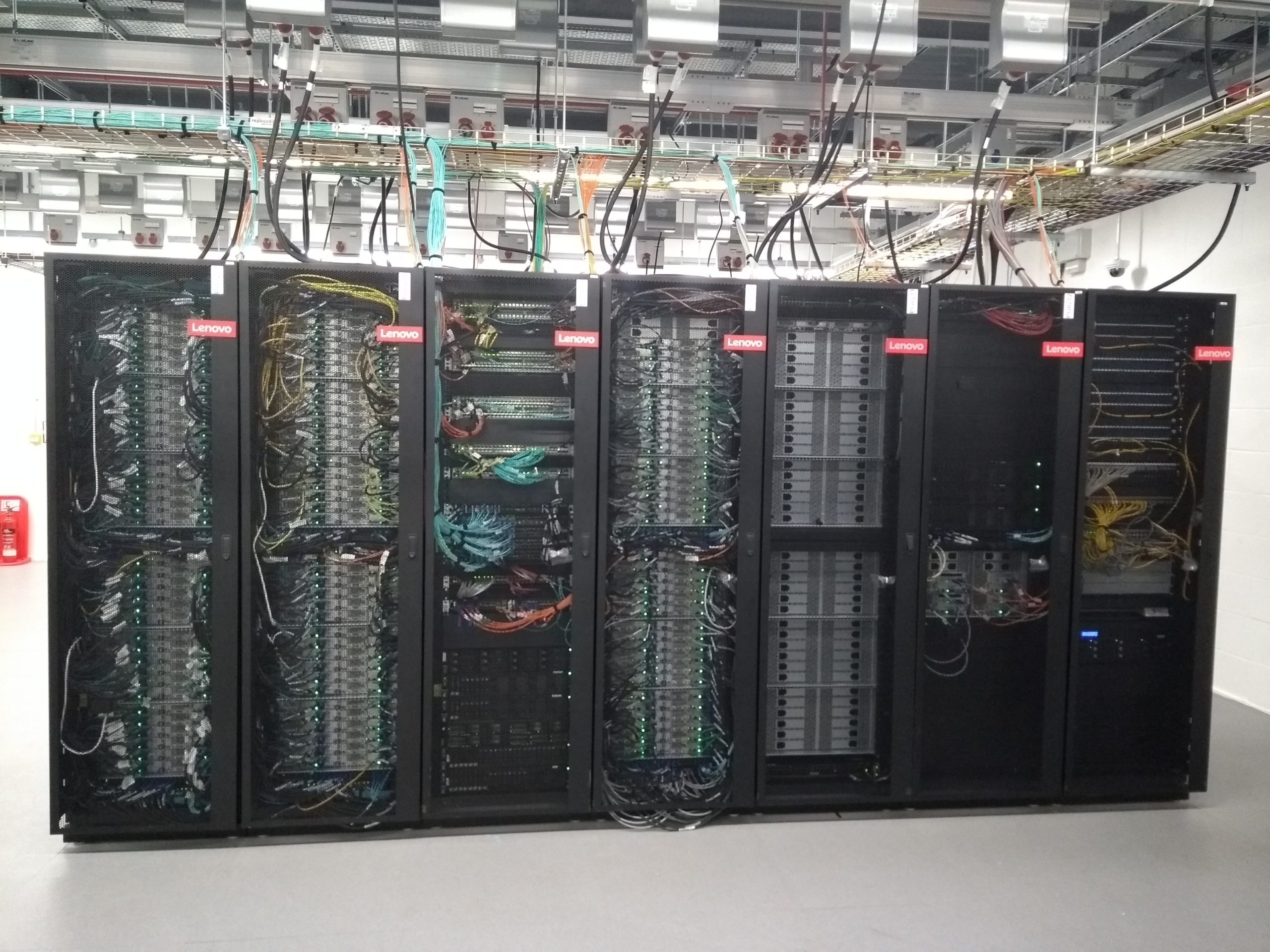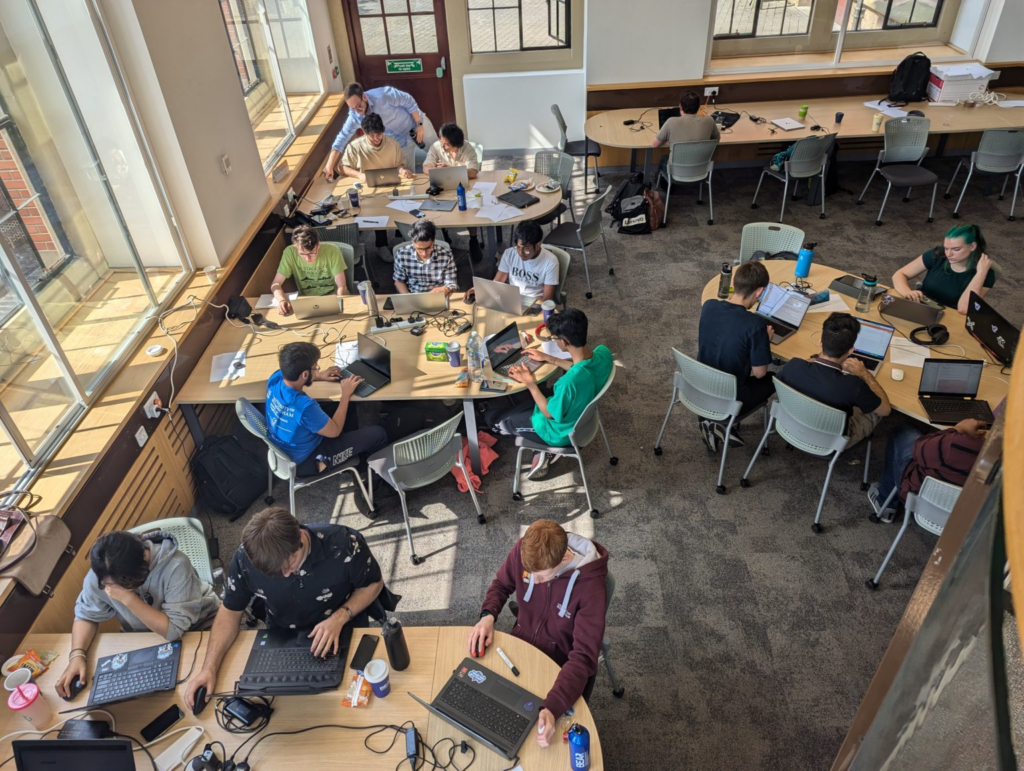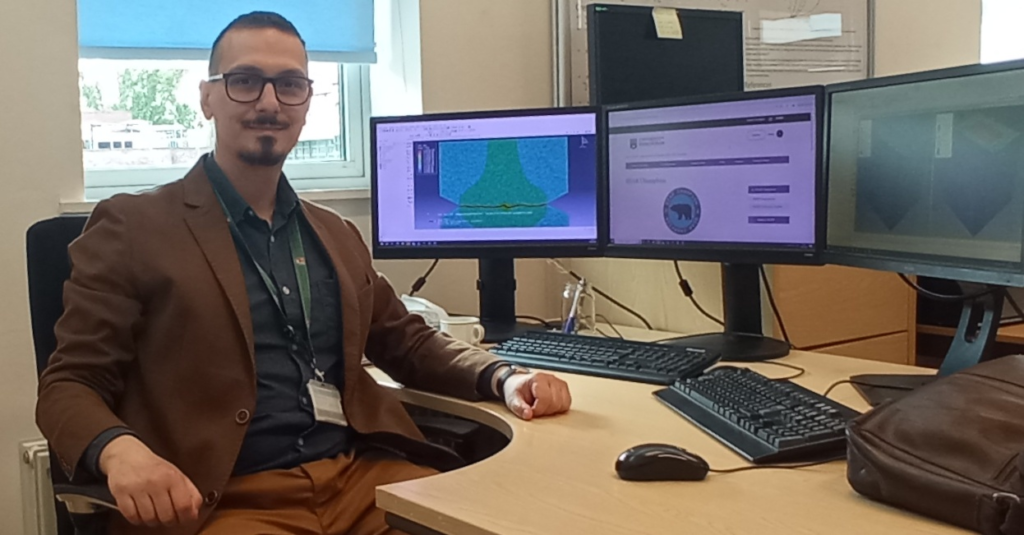As we head into the summer after a successful BEAR Challenge (see below), July is a quieter month for events, and there will be no BEAR newsletter in August. This month we have updates on BEAR services, including the doubling in capacity of our supercomputer, BlueBEAR, and an excellent job opportunity for finishing PhD students with a passion for technology to join Advanced Research Computing as a Research Software Engineer. We hope you all have a lovely summer!
Included in this month’s BEAR newsletter:
- Update on the recent BEAR services downtime
- Doubling of BlueBEAR CPU capacity plus raised core limit for jobs
- News from the Advanced Research Computing team including two new posts
- BEAR Challenge 2024
- BEAR users feature in awards for game-changing impact
- UK Digital Humanities Congress
- Case study on using BlueBEAR to study stresses in manufacturing of materials
- BEAR drop-in sessions
Update on the recent BEAR services downtime

There was a serious data centre power equipment failure on Friday 5 July which caused a total outage of BEAR services over the following weekend. Unfortunately, the transformer connecting the UPS (Uninterruptible Power Supply) had been critically damaged, in the process triggering the sensitive, early-warning fire sensors. Once Estates confirmed it was safe on Monday 8 July, the process of checking equipment and reinstating services began.
As a result, BEAR services are now running without UPS and, until the transformer is replaced, are vulnerable to any instability in mains power. As the transformer is a custom-made part, it may be some months until a replacement is ready. Conversations are ongoing with Estates about the possibility of hiring a temporary UPS but note that this cannot be added without shutting down BEAR. Similarly, reinstating our own UPS once the transformer is fixed will also require a full shutdown. If it’s feasible, we will aim to combine this work with other planned maintenance to limit the disruption.
Doubling of BlueBEAR capacity plus raised core limit for jobs

On a happier note, we are pleased to announce that our High Performance Computing cluster, BlueBEAR, has doubled in capacity with the recent addition of over 16,000 Intel Sapphire Rapids to nearly 40,000 cores. Details can be found on the BlueBEAR standard resources webpage. To maximise use of the new resources, we have increased the per-user limits for BlueBEAR from 864 cores to 1,344. This has resulted in a maximum peak usage of BlueBEAR so far of 26,000 cores last Friday. Please do spread the word amongst researchers that there is lots of capacity on BlueBEAR, with minimal queue time, all available for free (priority access can be paid for).
News from the Advanced Research Computing team including two new posts

The Advanced Research Computing (ARC) section within IT Services provide BEAR services for researchers. The team is split into three groups and this month, Salih talks about his role as a Graduate System Engineer in the Architecture, Infrastructure and Systems group in his blog post ‘Journey of a new graduate system engineer in ARC’.
In the Research Software Group, there are currently two new posts offering opportunities to join the team:
- Research Software Engineering Lead (Grade 9) – details here (closing date 22nd July).
- Research Software Engineer (Grade 7) – details here (closing date 19th August).
BEAR Challenge 2024

We welcomed 50 undergraduate and postgraduate taught students to the 5th BEAR Challenge, held over 24-26 June. The event is run by ARC together with our industry partners, and links research and education, supporting students to enter careers in the rapidly expanding field of High Performance Computing. You can find out more in the BEAR Challenge blog post.
BEAR users feature in awards for game-changing impact

We were very pleased to hear some familiar names mentioned in the ‘Awards for Game-Changing Impact‘. We would like to congratulate all the award winners, but we feature how Professor William Bloss and Dr Nicole Wheeler make use of BEAR services to enable their research in our blog post on ‘BEAR users feature in awards’. We are currently looking for good examples of use of High Performance Computing to nominate for the prestigious HPC Wire Awards, find out more in the blog post or get in touch with us at bearinfo@contacts.bham.ac.uk.
UK Digital Humanities Congress

Starting on Wednesday 4 September 2024 for two days, the UK Digital Humanities Congress will bring together researchers and practitioners with an interest in Digital Humanities to consider opportunities and challenges around ideas and techniques, showcase current tools and projects, and build national and regional networks. This free event will be held at the University of Sheffield, for details on how to register, see the Digital Humanities Congress webpage (closing date 31 July).
Case study on using BlueBEAR to study stresses in manufacturing of materials

In this month’s featured case study, Vincenzo Brachetta (PhD student in Metallurgy and Materials) explains how he has used our supercomputer BlueBEAR to predict stresses in materials used in manufacturing, aiming to minimise material and energy waste. Through using BlueBEAR with its parallel computing capabilities, he can run multiple simulations concurrently, rapidly speeding up the time taken to analyse stresses in materials. Have a read of Vincenzo’s case study to find out more.
BEAR drop-in sessions

We have both virtual and in-person drop-in session dates over the summer – check the drop-in webpage for updates, as well as details on how to join the virtual sessions. Currently scheduled dates are also listed below:
- School of Dentistry, Osborne Room, 3rd floor – Tuesday 30 July, 12.00pm-13:00pm
- Via Zoom – Thursday 1 August, 10.00am-11.00am
- School of Dentistry, Osborne Room, 3rd floor – Tuesday 6 August, 12.00pm-13.00pm
- Via Zoom – Thursday 29 August, 11.00am-12.00pm
Missed last month’s newsletter?
Find June’s newsletter here. Sign up to receive the newsletter direct to your inbox by joining our bear-updates mailing list here (UoB login required), or ask to join via email at bearinfo@contacts.bham.ac.uk
